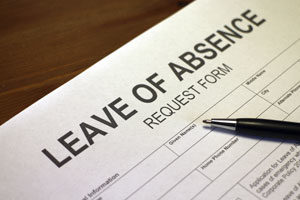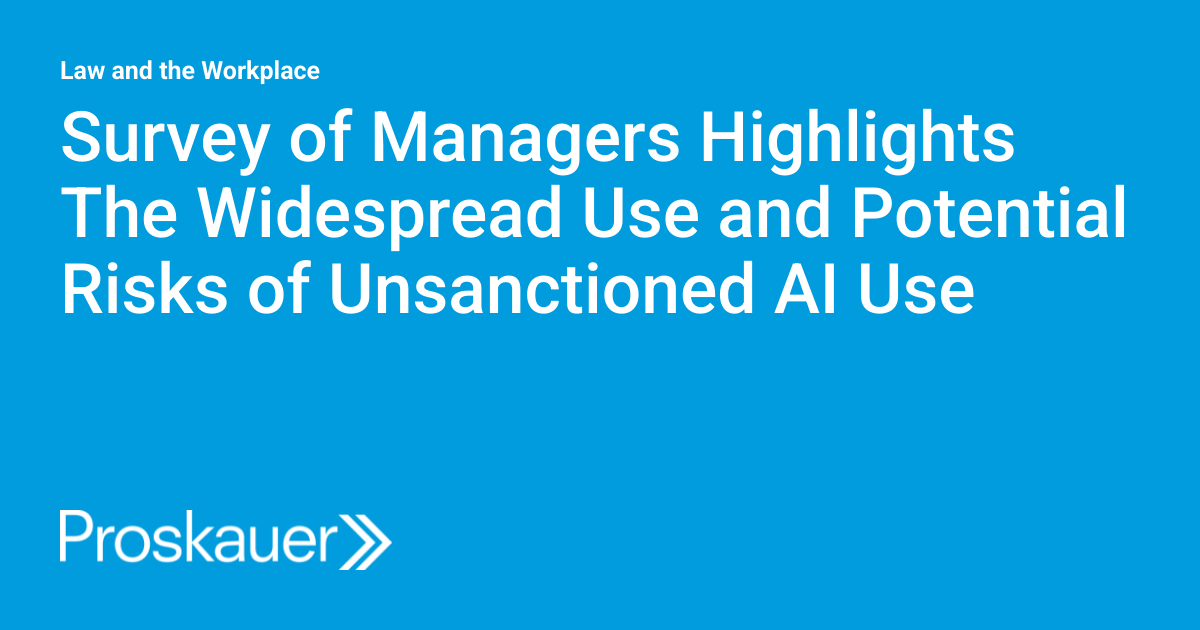Four Things You May Not Know About … the Family and Medical Leave Act | Law and the Workplace
Welcome to the first in a series of blogs examining often overlooked or misunderstood provisions of common employment law topics. Today we will be| Law and the Workplace
Survey of Managers Highlights The Widespread Use and Potential Risks of Unsanctioned AI Use | Law and the Workplace
If a recent survey is to be believed, managers’ use of artificial intelligence (AI) tools in making personnel decisions may be more extensive than their| Law and the Workplace
AI Bias Lawsuit Against Workday Reaches Next Stage as Court Grants Conditional Certification of ADEA Claim | Law and the Workplace
A closely watched class and collective action against the HR management services company Workday, Inc. reached a new milestone recently, when the Northern| Law and the Workplace
New York State Enacts Law to Protect Employees’ Reproductive Health Decisions | Law and the Workplace
New York Governor Andrew Cuomo has signed into law a bill which, effective immediately, prohibits employers from accessing information on employees’ or| Law and the Workplace
DOL Releases Updated Overtime Rule | Law and the Workplace
The DOL released its updated federal overtime rule on April 23, 2024. With limited exceptions, the rule increases the minimum salary for exemption as| Law and the Workplace
Federal Court Blocks DOL Overtime Rule | Law and the Workplace
A federal judge in Texas has enjoined the new overtime rule on a nationwide basis. Specifically, the U.S. Department of Labor is enjoined from| Law and the Workplace
Texas Court Strikes Down Federal Overtime Rule (Again) | Law and the Workplace
For the second time in seven years, a federal court in Texas has struck down a U.S. Department of Labor (DOL) rule aimed at expanding the scope of| Law and the Workplace
Fifth Circuit Affirms DOL’s Right to Set Salary Minimum for White Collar Exemptions | Law and the Workplace
In its September 11, 2024 opinion in Mayfield v. Department of Labor, the United States Court of Appeals for the Fifth Circuit held that the U.S.| Law and the Workplace








